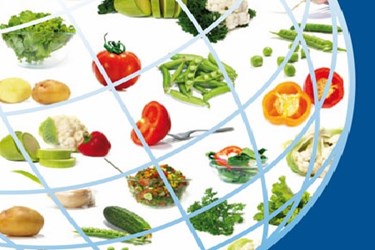How Fruit And Vegetable Producers Can Create A Successful Value Chain

By Sam Lewis

Last week, the Produce Marketing Association held its Fresh Connections Conference in South Africa. One company’s executive discussed the importance of becoming regulatory compliant, boosting profitability throughout the supply chain, and improving sustainability from farm to fork.
During the Produce Marketing Association’s (PMA) Fresh Connections, held in Pretoria, South Africa, Syngenta’s head of Food Chain Engagement, Martin Kodde, discussed how the company is striving to recognize and satiate the concerns of consumers. According to Kodde, becoming compliant with import and export regulations is of the utmost importance. “The first challenge is compliance with the regulations, as both import and export companies expect high standards, with the added challenge of certifications.”
Tips For Complying With New Food Safety Regulations
Secondly, Kodde addresses profitability, noting, “We have to ensure that everyone involved in the production chain obtains its share.” Finally, Kodde addresses the importance of sustainability in creating a successful, produce value chain. “Sustainability, which is all about efficiency in resource and environmental management; issues that are easier to identify than they are to solve, to which end accepting innovation is a necessary step,” says Kodde.
Kodde believes, “A successful value chain is one that creates value from farm to fork; it is about efficiency in the supply chain; about understanding consumer needs, and this is something individuals cannot do on their own, as everyone in the value chain has a role to play.”
But, how does a company identify these needs? Syngenta surveys its customers. “In a survey conducted two years ago, which reached 1,800 vegetable consumers, we found that 10 percent of them could be considered “adventurous eaters”; these are the ones who will buy new products and show them to friends,” says Kodde. The most conservative eaters, which Kodde calls “value for money eaters,” came in at about 33 percent. The most conservative consumers, “convenience eaters,” spending little time in food preparation, fell at 25 percent. And finally, “involved eaters,” consumers who regularly buy organic goods and hold sustainability in high regard, came in at 32 percent of those surveyed.
All this data is fine, but what really matters is how it is used. Kodde says this data plays out in Syngenta’s daily tasks in matching consumer preferences. “In the case of tomatoes, for example, we can look at characteristics such as vitamin content, flavor, shelf life, and texture and adapt the breeding programs to match consumer preferences, while at the same time ensuring that they are built resistant to diseases; a highly complex process which relies on careful gene identification.”
The Impact Of Permeation On Shelf Life And Packaging
On the growing end of produce, sustainability has become the critical issue. Growers are now, more than ever, paying close attention to issues such as safety, water conservation, soil management, ethical production, and waste reduction.
To help growers with sustainability programs, Syngenta has “developed practical tools that assist in the implementation of sustainable practices, such as the Operation Pollinator, an international biodiversity program designed to boost the number of pollinating insects on commercial farms by creating specific habitats, tailored to local conditions and native insects, which has already resulted in increased productivity,” says Kodde.
But, Syngenta’s sustainability platform doesn’t end there. “In Europe, we have also developed operational farms where we show how sustainability works by showcasing, among other things, how biological control works, and we also have residue management programs in place,” explains Kodde. “All this serves to meet Syngenta’s goal, which is to ensure our growers are able to meet all private standards while minimizing risks in the food chain.”
